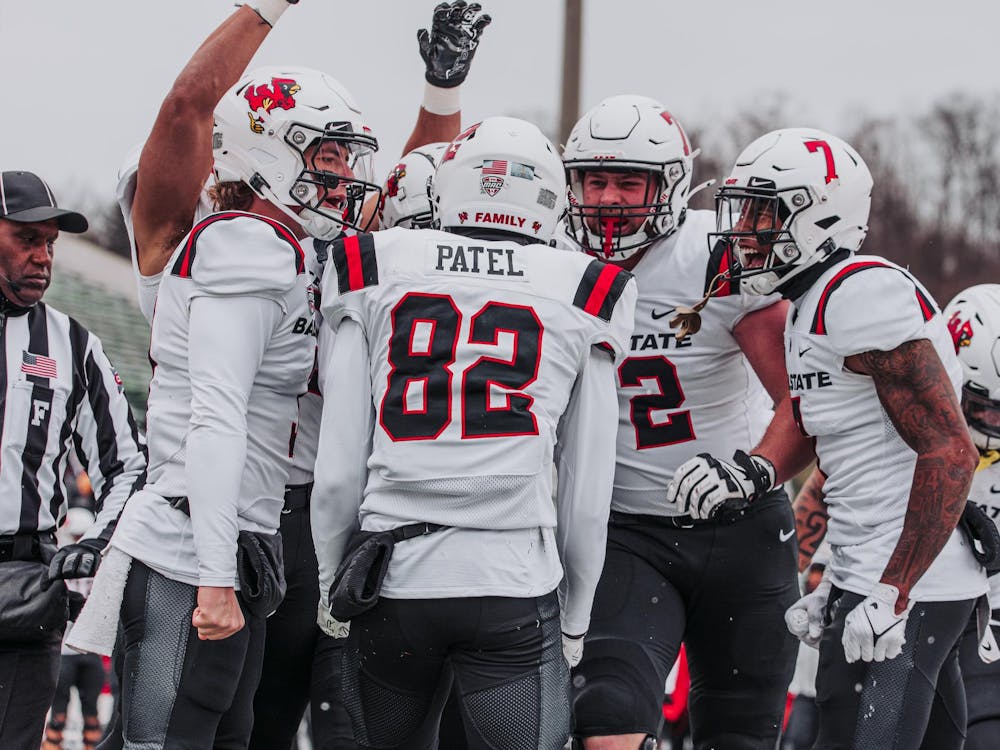The remaining forum meetings
April 22 — Burkhardt Building Room 100
- 9 a.m., faculty and all staff
- 10 a.m., student body
The search for a new president will provide a fresh look at the school’s goals, acknowledging that the community wants transparency, a member of the search committee said.
As the search committee for a new president met for the first time April 21, Rick Hall, one of the 16 members and president of the Board of Trustees, said much of the process had to be handled privately so that candidates would not be discouraged from applying by unwanted publicity.
“The search will be confidential, but the committee is to report from time to time to the rest of the campus of the progress that we're making,” Hall said.
The unexpected departure of former President Paul W. Ferguson after just under 18 months in January - accompanied by little in the way of explanation - triggered complaints that the trustees were acting in secret.
Hall said that under university policy, state and federal law, committee members cannot discuss the details of the presidential search.
“Any member of the search committee who breaches confidentiality may be removed without replacement,” he said. “That is very important, not because we want to be secretive in any way, but to conduct the process that yields the most qualified candidates.”
About 400 to 500 candidates are expected. The committee’s chair, Matt Momper, echoed the need for privacy.
“We’re going to get the cream of the crop – as long as we’re a closed search,” Momper said said.
The consulting firm Witt/Kieffer of Oak Brook, Ill., is being paid $115,000 for its services. John Thornburgh, a senior partner with the group, joined the meeting by speakerphone.
Thornburgh said the field will be whittled to eight to 10 candidates who the committee will meet in person. Three or four will be selected by the committee to pass along to the full Board of Trustees. They won’t be ranked in order of preference.
“The general timeline - we’ll be making it much more specific as we get into it … will be to really understand what you want your next president to accomplish – their background, their skill set,” Thornburgh said. “But we need to be in agreement where this campus needs to go, and how the next president can drive that.”
Diversity will be a major consideration, he said.
“Diversity in all respects,” Thornburgh said. “Certainly in demographics, but also where they come from, how they developed their leadership skills. They can come from a lot of areas, within, and potentially from outside, of higher education.”
The consultant is helping write a document to guide the search.
“We’ll be coming back in about a month with a draft document with the facts and figures, compelling elements to refine in writing the leadership agenda,” Thornburgh said. “The strongest candidates aren’t going to immediately put their hands up. They’re going to ask for the facts and figures.”
Immediately after the meeting, the committee began holding two days of public forums to give students, faculty, staff and the public the chance to talk about their thoughts on the position.
Thornburgh said he would visit campus next week.
“I will be meeting with the senior leadership of the board, hearing first-hand what’s on people’s minds, and that will help me further appreciate what’s special about Ball State,” he said.
Thornburgh said the Board of Trustees could choose the next university president as soon as October 2016, but also that "timelines and deadlines shouldn't stand in the way of exceptional results."




